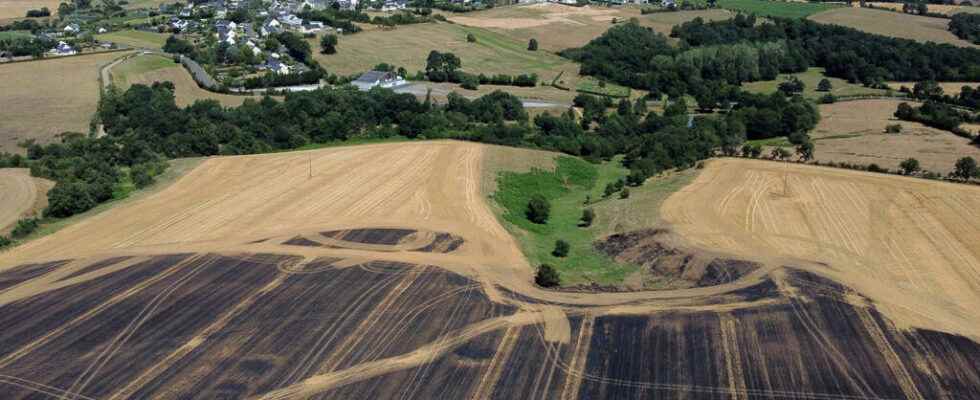” Most likely the driest month of July since 1959 and the start of the surveys: France, where a new fire covered 650 hectares on Tuesday July 26 in the Hérault, has been facing a drought for weeks which has prompted the authorities to impose restrictions on the use of water in 91 departments, a “ record “.
” On average over France, eight millimeters of precipitation fell from July 1 to 25 “, that is ” a huge rainfall deficit “, told AFP Christian Veil, climatologist at Météo-France. Result : ” July 2022 will most likely be the driest July on record since 1959, according to the weather agency.
Jérôme Nicolas, hydrogeologist at BRGM, Bureau of Geological and Mining Research at the microphone of our journalist Sylvie Koffiadds: The consequences for groundwater aquifers are the continuation of the emptying, in fact the emptying of the aquifers has been going on for several months, therefore given the low rainfall in recent weeks, and with the driest period ever observed since 1958, emptying will continue on all groundwater in the territory, this will lead to a reduction in levels “.
The situation will continue to deteriorate, which has already been the case in recent months.
Jérôme Nicolas, hydrogeologist
The solution is of course that it rains. ” Summer rainfall, even if it does not recharge the groundwater because it does not generate effective rain, when we talk about effective rain we are talking about rain that will infiltrate deep down to feed the aquifers and ensure that the the level of the water table increases, but on the other hand these summer rains in fact make it possible to bring water to the surface, to the vegetation in particular, and therefore limit the withdrawals and the stresses on the water table through groundwater withdrawals . »
Canals and agriculture hit hard
The traffic on rivers and canals is also very disturbed : navigation is interrupted on part of the Burgundy Canal and in the Nancy region, while many barges on the Rhine are only loaded to a third of their capacity, so as not to scrape the bottom of the river.
Agriculture is also very affected. Joël Limouzin, in charge of climate risks at the National Federation of Farmers’ Unions (FNSEA), specifies the issues at the microphone of Sylvie Koffi : “ The first consequences were already felt in the spring, from the month of May, when we saw already excessively high temperatures, very low periods of rain. (…) We have corn which is in great pain, sunflowers the same thing, with this amplification, with the heat wave, where we had two phenomena a little in the month of May, the month of June and especially the month of July, and we are told it will come back. »
Our concern is more about the meadows for the livestock world, where there is no longer a single meadow that is capable of feeding the animals.
Joël Limouzin, in charge of climate risks at the FNSEA
This situation is very stressful for farmers, who are weeks or even months ahead of their harvest. ” We see that even the corn crops are completely dried up today, we have the first harvests which will be done at the end of the week when we will be almost a month ahead of time, we are really very panicked about this situation, and with a significant lack of water, including for watering animals, in particular to support the population, so it is still a fairly unprecedented situation for 2022 », Specifies the representative of the FNSEA.
The fauna sticks out its tongue too, with water points ” which are becoming scarce “, forcing the animals ” to go much further “, which increases the ” risk of collision on a road “Or exhaustion, alarmed Jean-Baptiste Decotte, of the LPO Auvergne-Rhône-Alpes.
(And with AFP)
► Read also : Earth Overshoot Day: Humanity has consumed all the planet can produce in one year
